Reaching the unreached: Mali Red Cross teams go the last mile to ensure children get life-saving vaccines
In remote communities across Mali, Red Cross volunteers are overcoming immense obstacles to find zero-dose and under-vaccinated children and put them on a path to a safe and healthy future.
- 17 October 2025
- 6 min read
- by IFRC
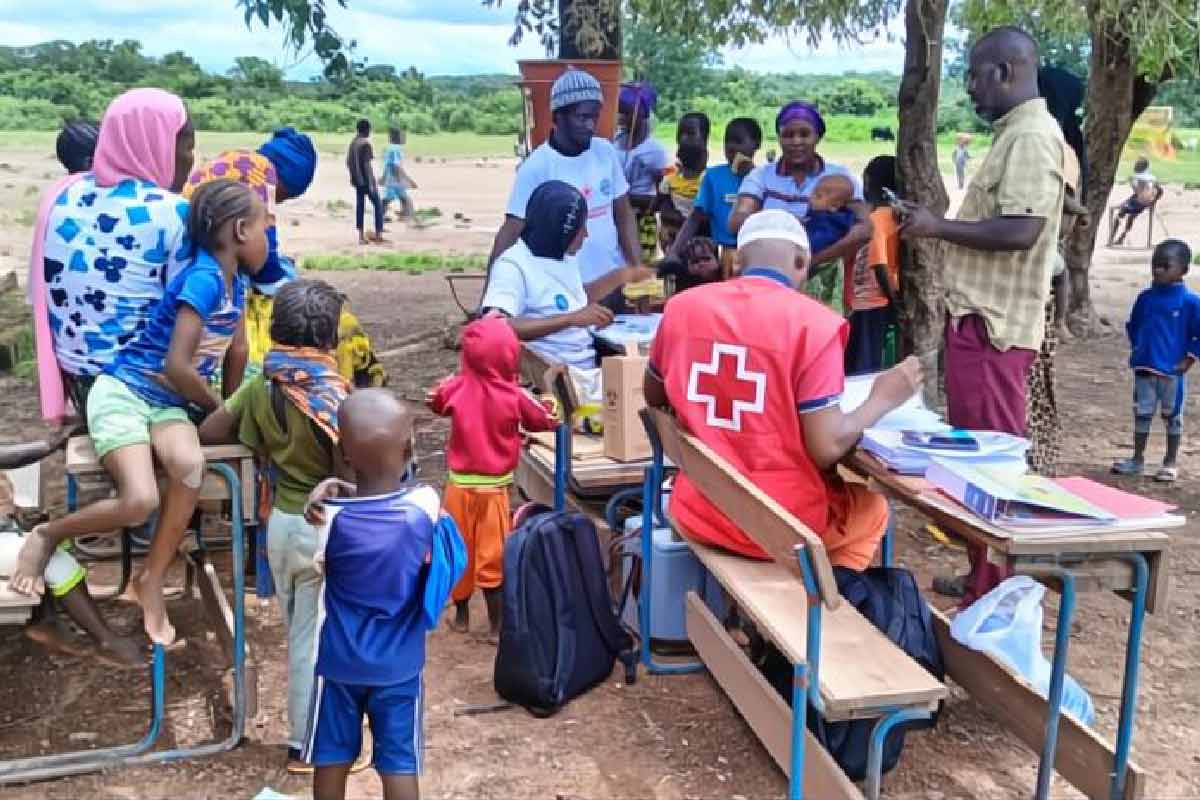
Immunisation is one of the most powerful tools we have in the fight against infectious diseases. Every year, vaccines save millions of lives and help to slow and stop diseases from spreading.
But in Mali, West Africa, fewer than half of the country’s children have received all the essential childhood vaccines they need to live long and healthy lives—putting them at risk of deadly yet entirely preventable diseases such as diphtheria, measles, and tetanus.
No child should be left vulnerable to disease simply because of where they live. So, with support from Gavi, the Vaccine Alliance and IFRC, the Mali Red Cross has been working tirelessly over the past year to help close the vaccination gap—with a particular focus on helping the hardest-to-reach children who may otherwise slip through the net.
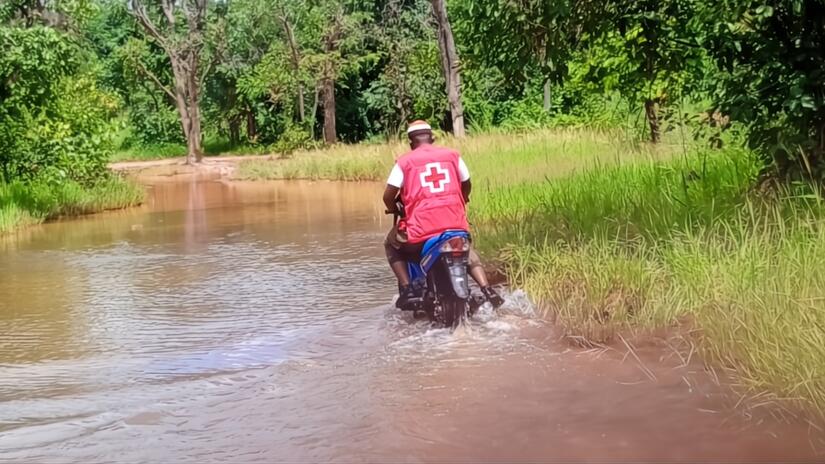
Why do so many children in Mali miss out on vaccines?
Parents in Mali face many different barriers to getting their children fully vaccinated.
The first is simply a lack of healthcare access. Many remote communities—particularly those in Mali’s northern desert regions—live days away from their nearest health centre, making it difficult and costly to attend vaccination sessions.
Since 2012, ongoing armed conflict across the country has displaced hundreds of thousands of people. For families on the move, keeping up with their children’s vaccination schedule can be challenging amid the upheaval—not to mention health clinics and workers can be forced to stop operating due to the fighting. On top of this, devastating flooding swept across Mali in late 2024—displacing even more communities and putting further strain on the country’s health system.
And even when families in Mali do have access to health services, misinformation and harmful rumours about vaccines—for instance, that they cause sickness or sterility—can discourage parents from bringing their children forward for their jabs.
What are Mali Red Cross volunteers doing to help?
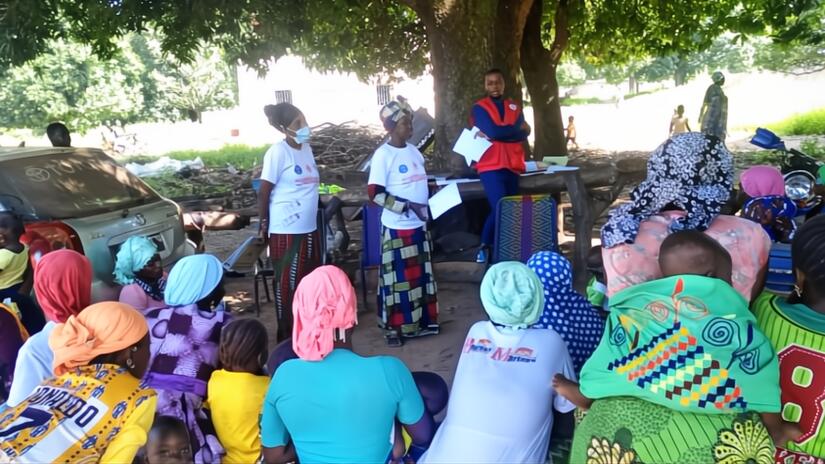
Mali Red Cross volunteers are well-placed to support immunisation efforts because they are local, known and trusted by the communities they support.
While they don’t administer vaccines themselves, volunteers act as an important bridge between communities and local health services. Every day, they go door-to-door in far-flung villages to speak to parents about their children’s vaccination status, recording data on those who have never received a jab (‘zero dose’) or whose who are falling behind (‘under-vaccinated’). This data gives local health authorities vital insight into where gaps remain.
Volunteers then encourage parents to take their kids for their routine immunisations, providing trusted information on the benefits and informing people where, when and how to get them.
“It’s not that communities don’t want their children to be safe and healthy. But often there is misinformation swirling and it takes the right person reaching them with the right knowledge at the right time”, explains Dr Sidi Touré, IFRC Programme Manager for the vaccination support project with Gavi.
“We make sure Mali Red Cross volunteers are equipped with accurate health information to share with their communities. They very patiently and sensitively explain to families, in their local language, how vaccines have stopped other children from getting sick and how it can protect their children, too.”
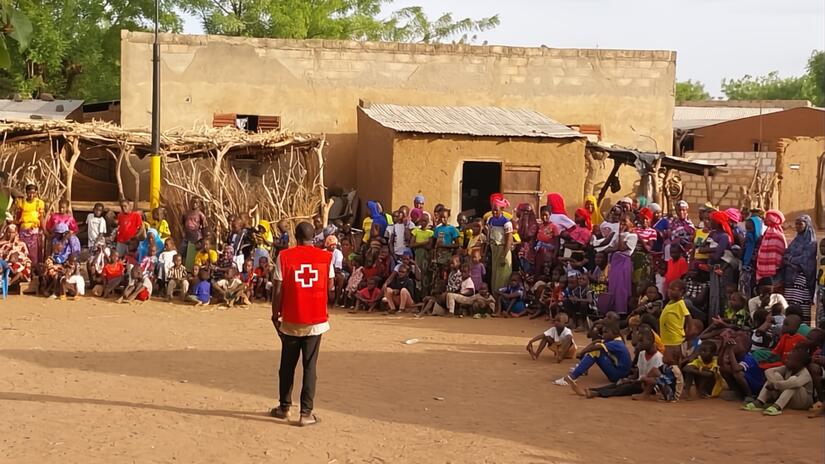
Household visits are complemented by regular community events and interactive radio shows, during which parents can call in with their questions for health experts and volunteers.
And in some districts, where communities are particularly hesitant towards vaccines, volunteers work with local theatre troupes to stage entertaining performances which explain how vaccines work and allay people’s fears in a fun and engaging way.
Taking vaccines to the people
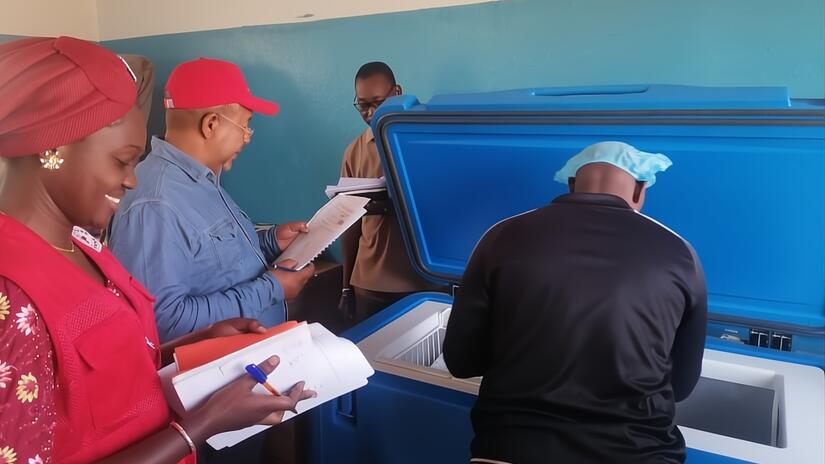
When volunteers identify a large cluster of zero dose or under-vaccinated children in a remote area, Mali Red Cross coordinates with the nearest health centre to take vaccines directly to families in two main ways:
- Outreach sites: typically for communities within 5-10km of a health facility, volunteers accompany and help transport health workers with vaccine carriers to run vaccination sessions—often tied to community events or market days to reach as many people as possible.
- Mobile clinics: for remote, hard-to-reach areas or displaced and nomadic populations, mobile teams travel out to set up temporary vaccination points. These missions require careful planning to navigate tough terrain, ensure security, and maintain the cold chain so vaccines stay effective.
In both cases, the role of Mali Red Cross volunteers is crucial. Their community engagement efforts raise awareness about when and where the sessions will take place and generate demand for the vaccines. This means that when health workers arrive with the jabs, families are ready and eager to vaccinate their children.
“Previously, many families did not understand the importance of vaccination. But thanks to the explanations and regular visits of Mali Red Cross volunteers, almost everyone in our village now supports it. Today, women regularly bring their children to get vaccinated whenever the vaccination officer visits the village,” says Issa Souleymane, Head of Goundjougoufouga village in Sikasso region.
Closing the vaccine gap
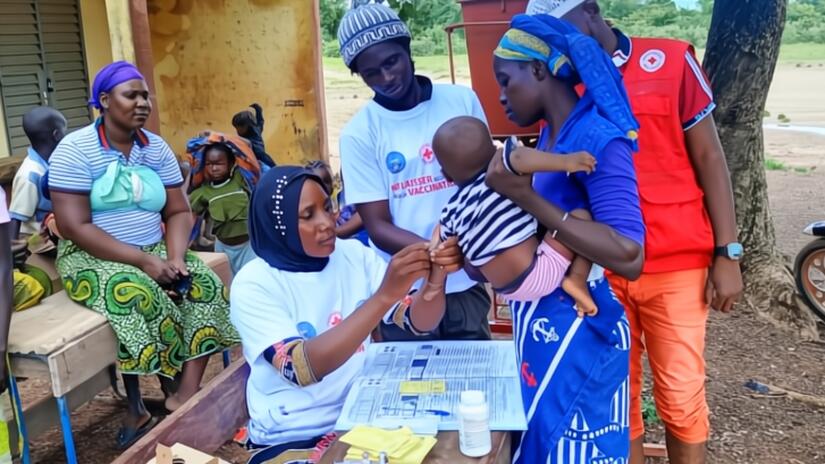
In the past year, Mali Red Cross volunteers have identified more than 30,000 zero-dose and more than 17,000 under-vaccinated children, supporting the vast majority to be vaccinated by local health workers.
These figures may seem modest, but they represent some of the highest-risk children who would otherwise have remained invisible to, and unreached by, local health authorities—leaving them vulnerable to entirely preventable diseases. Reaching these last-mile communities also helps prevent outbreaks and protects the wider population.
“The arrival of the Red Cross to support routine vaccinations has been truly beneficial. Firstly, the district knows which children are under-vaccinated or unvaccinated. Through volunteers’ activities, vaccination indicators have improved with their support to outreach sites and mobile teams. The project contributed to us exceeding our Penta3 coverage targets in 2024, leading to a drastic reduction in the number of under-vaccinated children in the district,” explains Dr Daou Dassoun, Head of Sagabari Health District in Mali’s southern Sikasso region.
Building local, long-term immunisation capacity
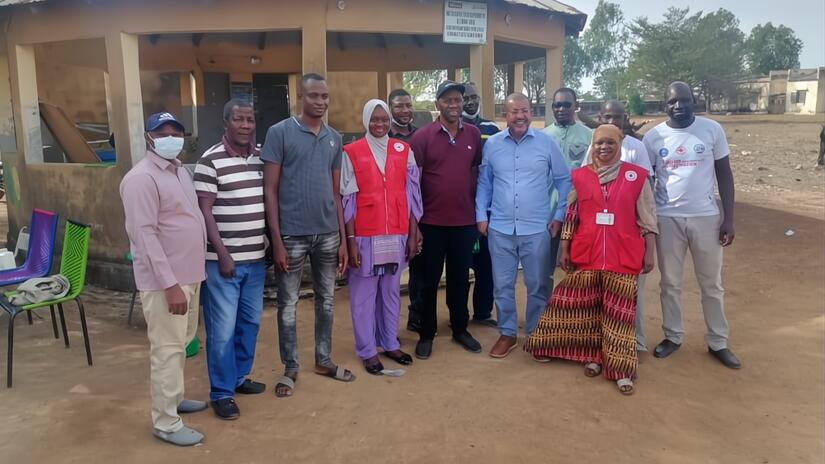
Support from IFRC and Gavi is helping Mali Red Cross and local health authorities in Mali to improve their immunisation services in the long term.
With more comprehensive data, improved coordination, and more effective planning of immunisation activities and strategies, they’re able to better serve hard-to-reach populations and make sure no child is left behind.
“Through this project with IFRC and Gavi, Mali Red Cross has been able to significantly improve our capacity in vaccination support, for example through the recruitment and training of more than 400 community volunteers. Our teams are now closely coordinating with the Ministry of Health on vaccination activities at all levels and are embedded in local health structures,” explains Dr Wiri Souara, Head of Health Department at Mali Red Cross.
Even after the vaccine support project ends, Mali Red Cross volunteers will remain by their communities’ side—encouraging parents, supporting local health services, and making sure children continue to get the vaccines they need.
Because every child, no matter where they live, deserves the chance to grow up healthy and safe.
More from IFRC
Recommended for you





